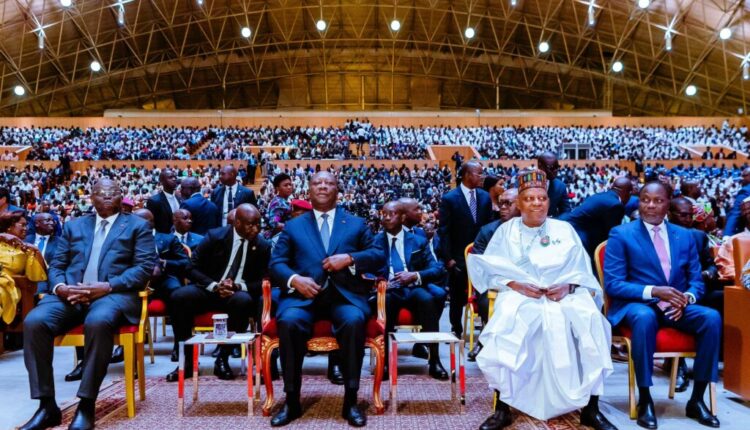The Federal Government has reaffirmed its commitment to creating an inclusive extractive industry anchored on the principles of transparency, regional partnerships, and local capacity building.
Vice-President Kashim Shettima stated this during the inaugural International Exhibition of Extractive and Energy Resources (Salon International des Ressources Extractives et Energétiques – SIREXE) in Abidjan, Côte d’Ivoire.
The federal government’s position at the event was contained in a statement issued by Mr Stanley Nkwocha, Senior Special Assistant to the President on Media & Communications, Office of the Vice-President, on Wednesday.
In the statement, the vice president also demanded strengthened governance, transparency, and collaboration from leaders and industry players to harness Africa’s resource wealth for sustainable development.
He said effective institutions are the cornerstone of turning natural resources into national prosperity.
“The strength of our governance institutions will determine whether resource wealth becomes a blessing or a curse.
“With the right policies, transparency, and accountability, we can ensure that our mineral wealth fuels development rather than division,” he daid.
Shettima underscored Nigeria’s leadership in transparency reforms with the creation of the Nigeria Extractive Industries Transparency Initiative (NEITI) in 2004.
“We became the first country in the world to domesticate the Extractive Industries Transparency Initiative because we understood that opacity breeds inefficiency and corruption.
“Transparency is non-negotiable for building trust and ensuring inclusive benefits for all,” he said.
Shettima also stressed the importance of regional cooperation in addressing shared challenges.
“Africa’s energy future is intertwined. The progress of one state ripples across others.
“Nigeria stands ready to share its lessons and collaborate with ECOWAS partners to build an extractive industry that works for our people,” he said.
He described how restructuring the Nigerian National Petroleum Corporation (NNPC) under the Petroleum Industry Act (PIA) 2021 into a commercially-oriented entity has transformed the sector.
“NNPCL now operates with agility, transparency, and reduced government interference. This shift is setting a new standard for resource governance in Africa.”
The Vice-President reiterated the critical role of local content development in driving economic growth.
“Through our Local Content Act of 2010, we increased local participation in the oil and gas industry from five per cent to nearly 30 per cent.
“The success of projects like the Dangote Refinery, the world’s largest single-train refinery, showcases what is possible when we prioritise indigenous capacity and innovation,” he said.


